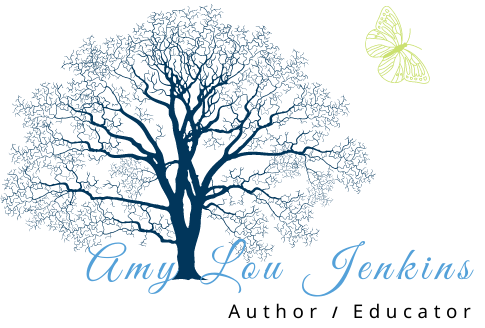Shooting a Deer

Previously Published in Sport Literate Magazine and the anthology Corners: Voices on Change under the title Shooting a Deer. This title makes an aspirational connection to George Orwell's famous essay Shooting an Elephant.
He’s not really my uncle, but I call him Uncle Bill. He began showing up at family events about a dozen years ago after Aunt Lil lost her husband. Bill is a carpenter, mason, electrician, and hunter. Hard of hearing, he just starts up a-talkin' about what’s on his mind rather than responding to a conversation. “She come up from the swamp and raised her nose in the air. Bow pierced her heart; she went down quick.” Shooting a dear was a sensory and relational experience for Uncle Bill, unlike shopping for meat.
He chewed swamp-doe venison sausage while he talked. My up-north Wisconsin relatives spend their November vacations and weekends in the swamps and fields of northeastern Wisconsin. The meat is important to their winter diet, so all are thankful that the chronic wasting disease that has infected other parts of the state’s deer population, has not been found in Marinette County. My relatives wouldn’t starve without the venison, but the hunt, the freezers and mason jars of venison steaks and roasts, and the recipes for cooking the lean protein are essential to the up-north culture. Our German and English ancestors came to this land based on the promise of land, game, and a kind of freedom that feels related to what goes on between humanity and the forest.
November Deer Hunting: Shots Fired
When I was a young girl, my parents made perennial November drives from Milwaukee to the land where my Mother had hunted and dogged every autumn in her memory. When I was about nine, they taught me to dog; I never carried a gun but helped the hunters with my little girl squeal. Relatives who knew the terrain chose a square of land. Eight to ten of us, dogs and hunters alike got in line, yelping and stomping to flush out deer, while other hunters stood in watchful wait.
The woods were cold, but my belly was warm with eggs, hash browns, and fried ham and bacon. We even ate apple pie. Since it was Grandpa’s breakfast favorite and apples were easy to find on abandoned land that had once been farmed by families, everyone got a pass to eat pie with eggs. Along with parents and grandparents, aunts, uncles, cousins, and hunting pals, we all gorged on a big old farm breakfast. These folks were bonded by their familiarity with 4 am farm mornings, and hunting further bonded the group as providers of meat for the family. In our family, the men and women hunted, and that was also a source of pride for me. That kitchen was wood-stove warm, smelled of coffee and fried bacon, and rattled with the chatter of hunting plans. They used specialized words I didn’t understand.
“If we drive the Spikehorn, Evie can use her old stand—where she shot the eight-point year before last.”
“The road off the Long Slide’s been showing activity.”
“You using the 30 ought 6, or going back to the McMillan?”
They sounded competent and excited, chewin’ and fast talkin’ at the yellow aluminum-edged table.
Before daybreak, we were in the swamp. Walking through plots of November swampland was toe-numbing cold. Sometimes the swamp water crusted with a skin of ice that broke when I stepped on it. Each step brought a moment of security, then a two-inch, or six-inch, or even eight-inch plunge into the chilly swamp water. I always worried my foot would go ten-foot deep, and I’d be screaming and going under like a quicksand victim, and they’d all think ‘What a good dog she is; wow what a screamer.’
Those hunters weren’t worried. Even though I usually couldn’t see them, an adult on each side of me tracked my pace on the line. They wouldn’t let me get a step ahead. They knew the land, woods, and names of the trees, birds, rocks, moss, and animal tracks. I loved being in the woods, the realm of my relatives. I loved the stories at the end of the drive about who had seen what, the foxes, hares, pileated and other exotics that had escaped my gaze. Often, they’d ask if I’d seen the young doe, old buck, or fox that passed in front of me. No, I generally only noticed my feet as I struggled through the rough terrain.
On a later drive, after it began to snow, watching my feet evolved into watching for animal tracks. I recognized rabbit tracks, followed by what Grandpa later confirmed were bobcat tracks. Both sets of tracks grew further apart, and I understood I was following the chase, and I was a part of the chase.
The bobcat tracks disappeared before we reached the creek, echoing a deathblow pounce. That cat must have been flying because, in the middle of a small stream, a snow-covered boulder held a pool of fresh, bright blood, and one set of tracks proceeding across the river. My nine-year-old self-imagined a dead bunny, but I couldn’t deny the excitement of being so close to the pursuit. I imagined that bobcat, the soft white-spotted fur, the three soft pads of the paws moving silently through the swamp and woodland. The bloody scene disturbed me, but another feeling crept in, perhaps excitement. I began to appreciate the beauty in the blood on the snow when I noticed our entire dog line had halted. Mom, twenty yards to my left, made crossing-guard arms to me; the message—stand still.
I saw him, his shiny brown eyes, his moist nose that rose from the ground and twitched before he turned his ten-point rack away from me and darted. The shot detonated my stillness. Everyone starting moving, and I got the arm wave to pick up my pace.
I thought they missed him because he ran and leaped into my view three more times before he dropped. We followed the blood trail. The shooter yelled from up ahead. “He’s a beauty.” I caught up to the hustle and stories of the kill. They posed with him, took pictures, and pulled up his head by the rack, so I could see how he’d have looked lying on the forest floor listening for danger.
He was beautiful.
He was dead.
I stood in the background of the scene and watched them cut into his belly, release the steaming warmth that had been life, and pull the slippery red and blue entrails out onto the frozen woodland. Snot and tears froze on my face. That scene persists in my memory, how confusing and sad it was to see those details of life and death. Shooting that deer changed the chemistry of each moment in those woods into an alchemy of celebration, regret, and reverence.
I never dogged with the hunters again, always found excuses, spent my Novembers in the city, never graduated from dog to hunter. I just couldn’t watch, couldn’t yell, and couldn’t shoot.
Eating and Living From the Land
With his mouth full of swamp doe, Uncle Bill had evoked images of that hunting kill, and I refused a slice of venison sausage, perched on a Ritz, for emotional rather than logical reasons. Uncle Bill chomped as he left the kitchen to bring in more firewood.
Uncle Bill had bought forty acres of land with money he earned from decades of skilled manual labor. He cleared a section of forest to build a cabin from the very trees he’d cut. At over seventy-five years old, he did it all himself. He felled each tree and hauled the logs to the sawmill and back. He nailed each nail, ran the electricity, and laid the stone fireplace. Although he had Aunt Lil select the arrangement of the green, beige, blue, and grey stones, citing “What the hell do I know about color coordination.”
Uncle Bill took us all out to the almost finished cabin on our most recent up-north trip. About twenty-five relatives were there; all the local families were hunters. All were February festive without a holiday to celebrate: cooking, playing games, sledding, taking the kids on snowmobile rides, making a racket of jokes, laughing at the baby giggle, and teasing each other. Aunt Lil told about the unfinished ceiling. “Bill laid pine boards on the floors and walls. He was going to lay them on the ceiling, but I told him he might have too much to drink, and not know where to walk.
We were a noisy bunch, except at one window that faced a field. “Look.” Five-year-old Abbey’s finger pointed out the window, and her small voice and stillness hushed us. Five deer moved slowly toward tan piles in the snow. A quiet voice behind me explained. “Bill feeds them hay and corn.” By this late in winter, food is scarce. Long cold winters cull the deer herds. He’s got names for the regulars and notices when they cease visiting. He even picked up a glass storm door from the dump and put it on the outhouse, so he could watch them from where he sits after morning coffee.
Sacrifice and Honesty in Deer Hunting
The day and evening stayed fun and noisy, but everyone took at least one turn at the quiet window. These deer and venison lovers have an honest relationship with their prey. I glimpsed it before we ate our potluck dinner.
Asking God to “bless our food” changed meaning for me. I always thought it was about me, like “Thanks for feeding me” or “Don’t let this food give me gastritis,” or even “Let it nourish me, so I might serve you.” I never understood the direct meaning of “bless our food, as my up-north relatives do. They understand the sacrifice of the deer.
Previously published in Sport Literate and Corners: Voices on Change


